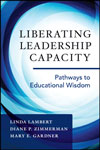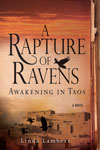Italy
Newer Entries »Norman Mailer calls it “Faction”
Tuesday, October 29th, 2013
Having now written three historical novels—the third in manuscript form: A Rapture of Ravens: Awakening in Taos—readers pose the inevitably question: What part is fact? What part fiction? Mailer calls this finely blended potion, “Faction,” composed of “fact” and “fiction.” As he phrased it: that “hybrid of documented fact and novelistic elaboration.”
It puzzles me as well. Let me just say that I know the difference–most of the time. (My husband, Morgan, playfully accuses me of not being sure where that line is.) In each of the novels….here is what is true, or true as commonly believed and practiced:
• the history and historical characters
• religious beliefs, rituals, and institutions
• political themes and issues
• cuisine, arts, and entertainment
• geography, locales, plants, animals
• climate, including many extremes
• many of the current characters—and those I clarify in author’s notes
For instance: In The Cairo Codex, the crypt under St. Sergius Church was once a cave and considered a stopping place for the Holy Family, or believed so by many…but whether there was a codex hidden in those ancient walls…ummmmm.
Posted in Arab press, Articles, Egypt, Fiction, Italy, Taos, Travel | No Comments » | Leave a Comment
The Justine Trilogy: Preparing for the Friends of D.H. Lawrence Book Fair
Sunday, October 13th, 2013
On September 19, The Friends of D.H. Lawrence is hosting a book fair at the Mabel Dodge Luhan house here in Taos. In preparation, I have summarized the relationship among the novels in The Justine Trilogy.
The Cairo Codex explores the bold themes of dominant human desires, fundamentalism, sexual awakening, feminism, and the pressures that lead to revolution. Egypt is a powder keg ripe for revolution, sparked by a discovery so shocking that religious and political forces converge to prevent its revelation.
Two days after arriving in Cairo, Justine feels compelled to revisit an ancient crypt, once thought to have been the home of the Holy Family. While in the crypt, an earthquake nearly buries her and she unearths a centuries-old codex. In the wake of its stunning disclosures, political and religious violence rocks the region and the Muslim Brotherhood prepares to take over the country.
Etruscan Evenings is a provocative novel of romance, culture, and history: the resolution of the meaning and ultimate possession of the diary of the Virgin Mary; finding of letters from author D. H. Lawrence to Justine’s great grandmother, Isabella; and the discovery of a primeval Etruscan tomb revealing the origin, journeys, and identity of this astonishing civilization that pre-dated the Romans. Lawrence’s Etruscan Places informs the search to understand these ancient peoples and the politics surrounding their identity. Tensions arise when the Vatican tries to subvert discoveries related to Mary of Nazareth. Justine heads for Taos, New Mexico.
A Rapture of Ravens: Awakening in Taos. Justine comes to Taos seeking the essence of D.H. Lawrence and her own spirituality. She stumbles into the conflict and hunt for the migration patterns of the peoples from the northwest. Here, she finds the Red Willow people, archeologists, Lawrence aficionados, and artists who draw her into the riveting blend of cultures that is Taos. She mentors a troubled young Indian girl, finding a sense of wholeness in that relationship. Lawrence discoveries include the spirituality he found on Lobos Mountain, his lost will, and letters that more fully explain his mysterious journey. After her Egyptian lover, Amir, joins her at Christmas, he returns to Cairo to lead the revolution of January 2011. A tragedy on Bloody Wednesday in Egypt is so shocking that Justine is thrown into turmoil and peril.
For more information: Linda Lambert, Ed.D., linlambert@mcn.org; www.lambertleadership.org; 707-328-4645.
Posted in Book Tour, Education, Egypt, Fiction, Italy, Taos, Travel | No Comments » | Leave a Comment
Do fictional characters have to be fictional?
Monday, June 24th, 2013
Writing coaches are notorious for saying so—same with writing tutors, magazines, etc. However, many authors, such as one of my favorites, D.H. Lawrence, constructed his characters from the people he knew best—and sometimes got himself in a lot of trouble because of it.
As I ventured into research for The Justine Trilogy—in Cairo, Italy, and Taos—I met fascinating characters: an ambassador, Director of Antiquities, Minister, and a revolutionary in Cairo; a striking geneticist and novelist in Ferrara, a museum director in Fiesole, a Baroness in Tuscany; three archeologists and Pueblo Indians in New Mexico…. A Greek historian here, and Lawrence scholar there. How could I ignore such a rich mine of flamboyant characters?
What was I to do? So, I asked them if they would consent to being characters in my novels. To a person, they were delighted. (However, I will admit that I never directly asked the Supreme Director of Antiquities—but I did rename him!)
What do you think about this lovely conundrum?
Posted in Egypt, Fiction, Italy, Taos, Travel | No Comments » | Leave a Comment





 Conceptions of leadership have evolved, and Liberating Leadership Capacity captures these new ideas and provides a pathway to create sustainable systems of high leadership capacity. Available April 2016 from
Conceptions of leadership have evolved, and Liberating Leadership Capacity captures these new ideas and provides a pathway to create sustainable systems of high leadership capacity. Available April 2016 from  A sizzling new novel set in Taos, New Mexico. The third in the Justine Trilogy, preceded by the award-winning, The Cairo Codex and The Italian Letters. Buy it at your local independent bookstore,
A sizzling new novel set in Taos, New Mexico. The third in the Justine Trilogy, preceded by the award-winning, The Cairo Codex and The Italian Letters. Buy it at your local independent bookstore, 
